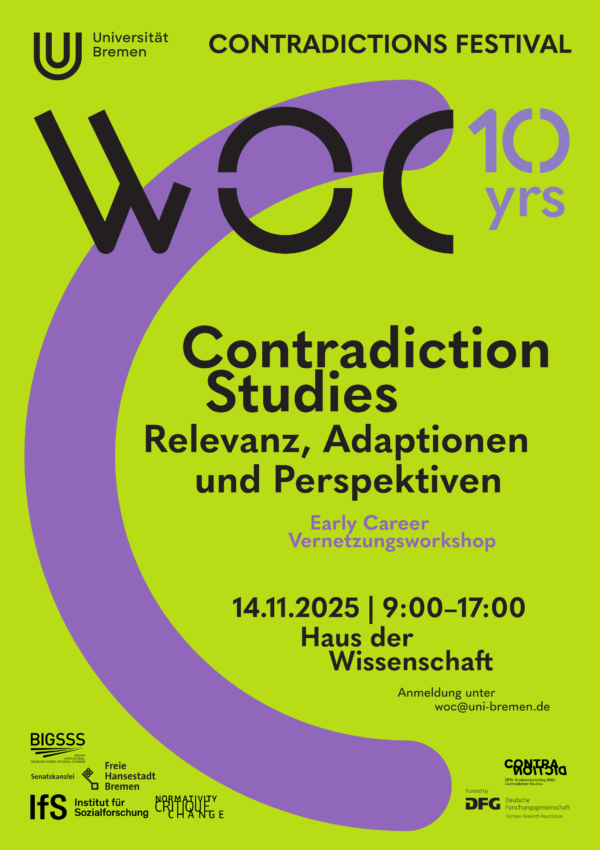Workshops
Past Events
-
 Masculinities: Diaspora, Racialization, and Right-Wing Radicalization
Masculinities: Diaspora, Racialization, and Right-Wing RadicalizationRadicalization is class-related and racialized. Using the example of the Grey Wolves, the event explores how notions of masculinity are politicized in diasporic realities. The focus is on the interrelationships between masculinity politics, right-wing authoritarian patterns of radicalization, racializing structures, and prevention approaches.
-
 Recognizing and preventing radicalization based on masculine ideology – but how? Talk and Workshop
Recognizing and preventing radicalization based on masculine ideology – but how? Talk and WorkshopWe are once again witnessing an intense authoritarian and far-right radicalization. It exhibits pronounced masculinity-ideological dimensions, through which authoritarian and fascist models of masculinity are normalized or even promoted as ideals. In this event, Markus Theunert offers both theoretical and practical insights into the factors driving masculinity-ideological radicalization: How can it be recognized? Most importantly, how can it be prevented?
-
 Toolbox #13 – Workspace
Toolbox #13 – WorkspaceToolbox – Contradiction Studies #9 in the winter term 2025/26 – Workspace: internal workshop
-
 Kick off Workshop – Peer Mentoring
Kick off Workshop – Peer MentoringPeer mentoring for doctoral candidatesProcess managment throughout the way to the doctoral degree Peer mentoring provides doctoral students with a framework to network with their peers, offering support in peer groups for the development, editing, and completion of dissertations. Through coaching and an introduction to […]
-
 “No More Bhopals” A Memorial Screening on the 41st Anniversary of the Bhopal Gas Tragedy followed by a discussion with Dr. Satinath Sarangi
“No More Bhopals” A Memorial Screening on the 41st Anniversary of the Bhopal Gas Tragedy followed by a discussion with Dr. Satinath SarangiOn the night of December 2–3, 1984, a leak from the Union Carbide pesticide plant in the central Indian city of Bhopal released over forty tonnes of methyl isocyanate gas, exposing more than half a million people to one of the deadliest industrial disasters in […]
-
 Workshop. How to Handle Your (Digital) Research Data Responsibility
Workshop. How to Handle Your (Digital) Research Data ResponsibilityResponsible handling of research data is an essential part of good scientific practice. When conducting research, it is not always easy to keep track of your research data. But what does responsible research data management (RDM) actually mean? The aim of this workshop is to […]
-
 Workshop and discussion with Onur Erdur. WOC Guest Professor 2025
Workshop and discussion with Onur Erdur. WOC Guest Professor 2025In November 2025, Dr. Onur Erdur will be visiting the Research Training Group 2686 as WOC Guest Professor 2025. Following an input talk by the historian and cultural scholar, a workshop discussion (German/English) with the fellows of the Research Training Group will offer an opportunity […]
-
 Early Career Vernetzungsworkshop
Early Career VernetzungsworkshopEarly Career Networking Workshop as part of the 10th anniversary of the WOC Contradictions Festival with members of the WOC Graduate Network (WOC GradNet), the DFG Research Training Group 2686 Contradiction Studies, the Bremen International Graduate School of Social Sciences (BIGSSS), the Institute for Social Research (IfS) and the GRK 2638 Normativity, Critique, Change
-
 Sicherung guter wissenschaftlicher Praxis an der Universität Bremen. Online-Workshop mit dem DFG Graduiertenkolleg 2686: Contradiction Studies
Sicherung guter wissenschaftlicher Praxis an der Universität Bremen. Online-Workshop mit dem DFG Graduiertenkolleg 2686: Contradiction StudiesThis workshop will be in German. Veranstaltungslink Meeting-ID: 678 4942 0984Kenncode: 500794 Programm Internationale Regelwerke und Vernetzungen Gute wissenschaftliche Praxisa) Warum Sie sich daran halten solltenb) Die zentralen Prinzipien und woraus sie sich ergeben Wissenschaftliches Fehlverhaltena) Was ist wissenschaftliches Fehlverhalten?b) Was passiert bei wissenschaftlichem Fehlverhalten? […]
-
 Workshop #3 – Data as/in Contradictions: Research, Practices, Politics
Workshop #3 – Data as/in Contradictions: Research, Practices, Politics